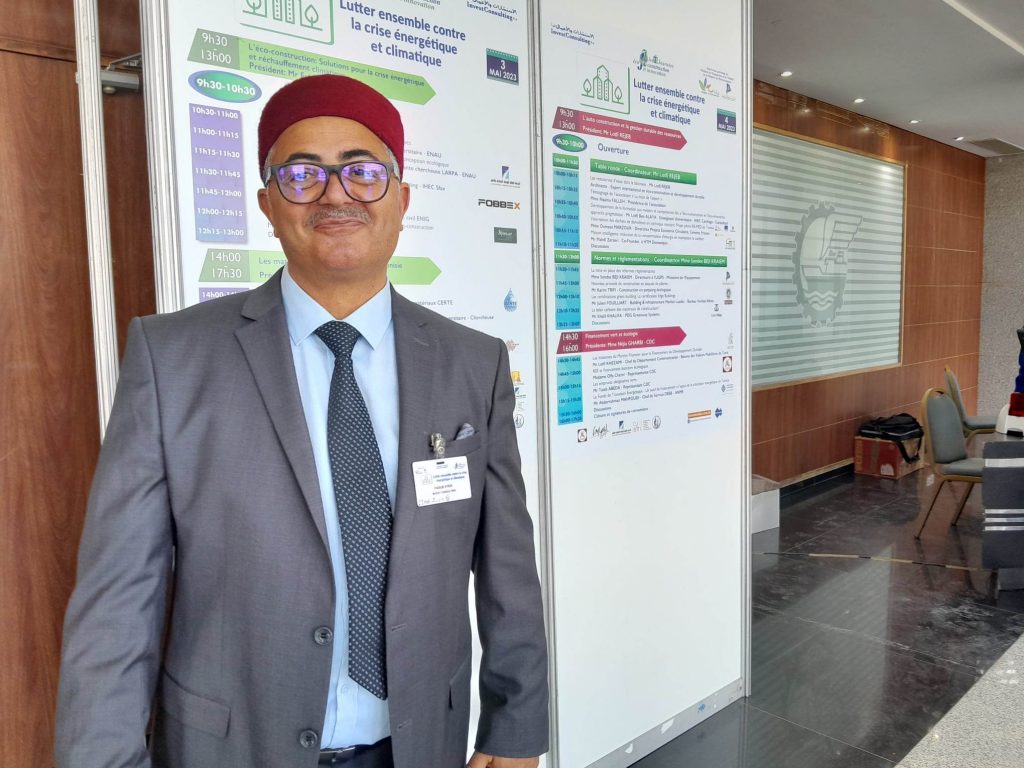The 15th edition of the Ecoconstruction Fair opened this Wednesday, May 3, at the UTICA headquarters in Tunis for two days of exhibition. This year's theme is "Fighting the energy and climate crisis together."
This event brings together all professionals in the field of green building. These days will be marked by conferences and discussions on innovative and practical solutions for green building and housing.
An issue that is all the more important when we know that the energy issue is now becoming a real challenge both ecologically and financially.
Eco-construction is a sustainable approach that addresses issues of comfort, health, and impact on the environment. It aims to make buildings less energy intensive, better integrated into their environment, and healthier for occupants.
According to Faouzi Ayadi, organizer of the event, this event aims to change consumer behavior but also the behavior of building materials manufacturers.
"The whole world is moving toward green building, whether it is on the side of materials, architecture or management. Through this fair, we want to develop the reflection of building differently with natural materials, which do not consume energy from the production and use side," he tells us.
He explains that these materials are mostly made of sand, plaster or even wood. "They allow a better quality of life and speed in installation. I remind you that the hospital in Jendouba was built in just one month because it is an eco-construction."
Like organic food, does green building cost more than so-called industrial or classical construction ?To this question, Faouzi Ayadi, tells us that this is due to a small market that has not yet developed enough. "This market is growing and I think that in the medium term we can reduce costs and democratize this type of construction."
At this ecobuilding fair, there is a booth that is driving visitors crazy. This is a company that produces compressed earth bricks (BTC). It is a clay brick composed of a mixture of clay, sand and lime that is then pressed and dried. It has excellent hygrometric regulation properties (moisture in the air).
"The m2 of compressed earth bricks cost only 50 dt and replace both traditional red bricks and plaster and paint," says Faouzi Ayadi.
The latter also deplores the state's lack of interest in ecobuilding. "There is an awareness on the part of the state but also of professionals in the sector. Of course, there is a lot of talk about influential lobbies, but we need to understand that even large industrialists can manufacture eco-friendly by recycling their waste by turning it into BTC," he points out.
Yet buildings with improved energy efficiency are very rare in Tunisia. While this may be an attractive selling point, very few developers are moving toward this type of construction.
"State or private developers could be the locomotives of this sector. The first ones who should jump on the bandwagon are those who think about public buildings. Today we are still building traditional red brick schools, leaving children sweltering in the heat and shivering in winter. These are aberrations due to a vision problem but also due to archaic regulations and standards," concludes Faouzi Ayadi.
